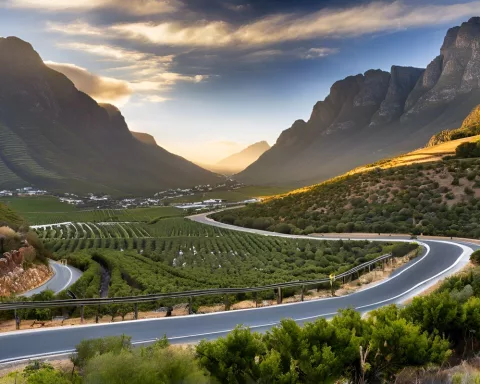Global rugby is set to undergo a revolutionary transformation with the upcoming debut of a groundbreaking international tournament in 2026. The joint effort of SANZAAR and Six Nations Rugby aims to reinvigorate the sport and secure its long-term viability while integrating traditions and forging a new path. However, there are critics who argue that the governance structure prioritizes established interests over the sport’s expansion. Despite this, the tournament promises to weave an engaging narrative and draw in new fans, but the future of rugby and its stakeholders’ priorities remain uncertain.
A Revolutionary Shift in International Rugby
Global rugby is set to transform dramatically with the upcoming debut of a groundbreaking international tournament in 2026. Jointly organized by SANZAAR and Six Nations Rugby, this tournament will feature Argentina, Australia, New Zealand, South Africa, England, France, Ireland, Italy, Scotland, and Wales. The aim is to reinvigorate the sport and secure its long-term viability, integrating traditions while forging a new path. However, critics argue that the governance structure prioritizes established interests over the sport’s expansion.
A Revolutionary Shift in International Rugby
The landscape of global rugby will transform dramatically in a span of six years. A groundbreaking international tournament is gearing up for a spectacular debut in 2026, causing ripples of anticipation and uncertainty in the rugby world. This audacious project, a combined effort of SANZAAR and Six Nations Rugby, has been met with equal parts excitement and skepticism.
The creation of this competition is undoubtedly a monumental feat, necessitating the joint effort of major players like World Rugby, Unions, significant leagues, competitions, and importantly, the International Rugby Players. However, significant shifts often invite skepticism, and there are those who question the intentions behind this project, considering it a strategic cash cow, devoid of the true essence of the sport.
The cutting-edge competition will feature the four SANZAAR Rugby Championship teams – Argentina, Australia, New Zealand, and South Africa – and the Six Nations Rugby teams from England, France, Ireland, Italy, Scotland, and Wales. The tournament will be further enriched by the inclusion of two additional invitational Unions, with the selection process for these teams guided by SANZAAR, World Rugby, and the International Rugby Players.
Upholding Traditions While Forging a New Path
A fundamental characteristic of this tournament is the commitment to upholding rugby’s long-standing traditions. The competition will occur in alternating years, ensuring no clashes with the British & Irish Lions Tours and Rugby World Cup. The International Players, pivotal to the creation of this innovative venture, have had their say at every phase, highlighting player welfare and the significance of synchronizing club and international schedules.
The competition’s structure will incorporate two divisions, providing a sturdy development trajectory for up-and-coming nations. Plans are in place for a second-tier competition involving European and other international teams. The joint effort of SANZAAR and the Six Nations will strengthen the bond between the divisions, nurturing a cycle of growth in the sport. The introduction of promotion and relegation matches promises a viable pathway for teams, thereby nurturing and broadening the global game.
Appeals and Critiques of the New Format
This unique competition aspires to weave an engaging narrative around the July and November windows, sparking player enthusiasm and drawing in new fans. The expectation is that this premium international competition will reinvigorate the sport, propelling its expansion and securing its long-term viability.
Nevertheless, the tournament has its share of critics. High-profile rugby analyst Robbie Owen, also known as Squidge Rugby, has questioned the exclusion of rising teams such as Georgia and potential future powerhouses like Chile. He charges the sporting authorities with trading the growth of emerging nations for financial benefit, arguing that the current governance structure prioritizes established interests over the sport’s expansion.
Encountering the Future of Rugby
This international tournament, born out of ambition, teamwork, and a desire to advance the sport, is preparing to take the rugby world by storm. However, it also shines a spotlight on imperative questions concerning the future of the sport, the prioritization of its stakeholders, and the distribution of power within its governing bodies. As the launch date approaches, the sport must confront these issues amidst the thrill of a new epoch. It is yet to be determined whether the allure of enhanced TV revenue will overcome fans’ concerns, or if a more harmonious approach will be adopted to secure the lasting growth and sustainability of the sport.
What is the upcoming international rugby tournament and when will it debut?
The upcoming international rugby tournament is a joint effort by SANZAAR and Six Nations Rugby that will feature Argentina, Australia, New Zealand, South Africa, England, France, Ireland, Italy, Scotland, and Wales. The tournament will debut in 2026.
What is the aim of the international rugby tournament?
The aim of the international rugby tournament is to reinvigorate the sport and secure its long-term viability while integrating traditions and forging a new path.
Who will be participating in the international rugby tournament?
The tournament will feature the four SANZAAR Rugby Championship teams – Argentina, Australia, New Zealand, and South Africa – and the Six Nations Rugby teams from England, France, Ireland, Italy, Scotland, and Wales. Two additional invitational Unions will also be included.
What is the tournament structure of the international rugby tournament?
The tournament will incorporate two divisions, providing a development trajectory for up-and-coming nations. Plans are in place for a second-tier competition involving European and other international teams. The introduction of promotion and relegation matches promises a viable pathway for teams, thereby nurturing and broadening the global game.
What criticisms has the international rugby tournament faced?
Critics have questioned the exclusion of rising teams such as Georgia and potential future powerhouses like Chile. Some have accused the sporting authorities of trading the growth of emerging nations for financial benefit, arguing that the current governance structure prioritizes established interests over the sport’s expansion.
What questions does the international rugby tournament raise about the future of the sport?
The tournament raises questions concerning the future of the sport, the prioritization of its stakeholders, and the distribution of power within its governing bodies. The sport must confront these issues as it approaches a new epoch.












